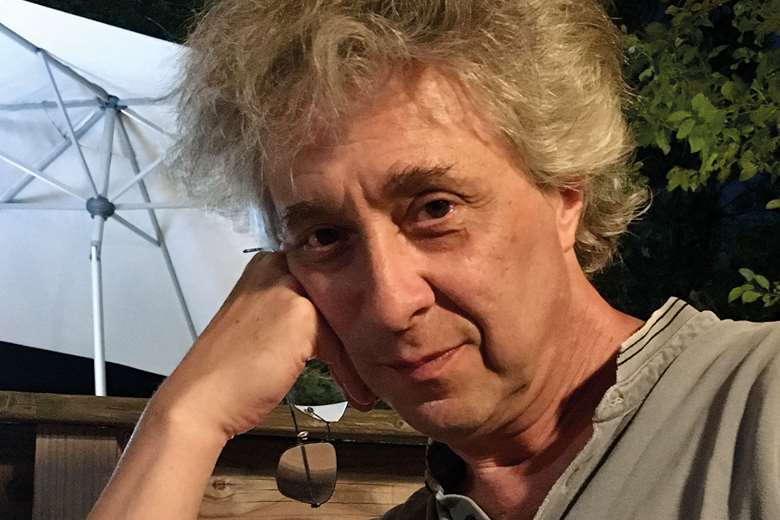Sergei Edelmann: the music of my life
Friday, August 30, 2024
Sergei Edelmann reflects on recordings that shaped his musical upbringing, from The Beatles to Horowitz

I can remember very well the first record I heard. My father [pianist Alexander Edelmann] put on Jascha Heifetz playing the Rondo capriccioso. I was not yet three years old, I had not started to play the piano but there was music all around in our house 24 hours a day. I was transfixed by it. I would listen to it over and over again, singing it, conducting it. It was not just the piece. It was the incredible sound that Heifetz produced that was so close to me. Then I began to play the piano when I was four or five. Of course, I was truly fortunate to be brought up in a musical family and to have the chance to work with one of the most incredible musicians and pianists – my father. Everyone in my family was a student of his: me, my mother, my brother. He was born in 1902 and I was born in 1960 – a big gap! He was a pupil of Blumenfeld and a classmate of Horowitz, Barere and later Maria Grinberg, because they all moved to Kiev from Moscow during the revolution.
Now. Sgt Pepper – 1967 if I remember correctly. Soviet Union. You can imagine – no one is allowed to listen to this kind of music. Either forbidden or impossible to get. I don’t know how we got a copy, but the very first recording to appear in our city [Lviv] was this one. I remember the cover. I was too young to understand its significance but my impression of it was absolutely incredible. My brother was seven or eight years older. He and a group of friends loved rock music. One of his classmates was a viola player called Yuri Bashmet who played guitar! They would listen to Sgt Pepper every moment they could. When I got to their age – 15, 16, 17 – I started to listen seriously to all The Beatles’ recordings. I could sing and recite all the lyrics. They were an important influence on me.
Heinrich Neuhaus played an enormous part in my father’s life. He was a nephew of Blumenfeld. My father respected him not only as a pianist but as a mentor. He knew him and heard him in his prime, and he always said that you had to listen beyond what you hear. The idea is what you hear. From 1937 Neuhaus had problems with his hands suffering from polyneuritis, but it was his wisdom, his amazing erudition and culture that my father benefited from. Neuhaus began drinking too much, which probably didn’t help, so when I listen to the Polonaise-fantaisie, it isn’t perfect but there are some amazing things and it made me fall in love with the piece. I couldn’t leave it.
In the 1970s we got this recording of Horowitz playing Kreisleriana. For me, this was a revelation. He had something very rare: the immediacy of re-creation. It was co-creation! The older he got, the better he got. Then in New York, thanks to my producer at RCA, Jack Pfeiffer, I got to meet Horowitz in person. He had heard about me and asked me to come and see him at 9.30 in the evening after dinner. So we talked in English at first, then Russian, about Blumenfeld and my father. Then he said would I like to play something. Well, you can’t say no to Horowitz! I played a Scarlatti sonata! Can you believe it? Well, I was young. And then the Italian Concerto and then the whole of the Wanderer Fantasy! Then Horowitz took down the score of Rachmaninov’s Symphonic Dances and put it on the piano and started to play. Both parts of course. We left at two o’clock in the morning. Unforgettable.
It was just about the last recording he made, but Furtwängler’s recording of Schubert’s Ninth Symphony – especially the slow movement – touched me like no other. It’s genius, cosmic, and one of my favourite symphonies in any case. Schubert is close to my being, to my heart. Not so many people can touch me in that metaphysical way, in the juxtaposition of serenity and inferno – always very close in Schubert’s music, especially in his late works. The climax he achieves in the second movement is cosmic, an explosion. He was one of the greatest. It’s like that recording Furtwängler made of Beethoven’s Fifth just after the war – 1946 if I’m not mistaken. The freshness of emotion, the freshness of the ideas. It’s like hearing this music for the first time.
The Music
Saint-Saëns Introduction and Rondo capriccioso, Op 28
Jascha Heifetz vn RCA Victor Symphony Orchestra / William Steinberg
Naxos
The Beatles Sgt Pepper’s Lonely Hearts Club Band
Parlophone
Chopin Polonaise-fantaisie, Op 61
Heinrich Neuhaus pf
Melodiya
R Schumann Kreisleriana, Op 16
Vladimir Horowitz pf
Sony Classical
Schubert Symphony No 9
Berlin Philharmonic Orchestra / Wilhelm Furtwängler (1953)
Deutsche Grammophon
Interview by Jeremy Nicholas
This article originally appeared in the Autumn 2024 issue of International Piano. Never miss an issue – subscribe today









